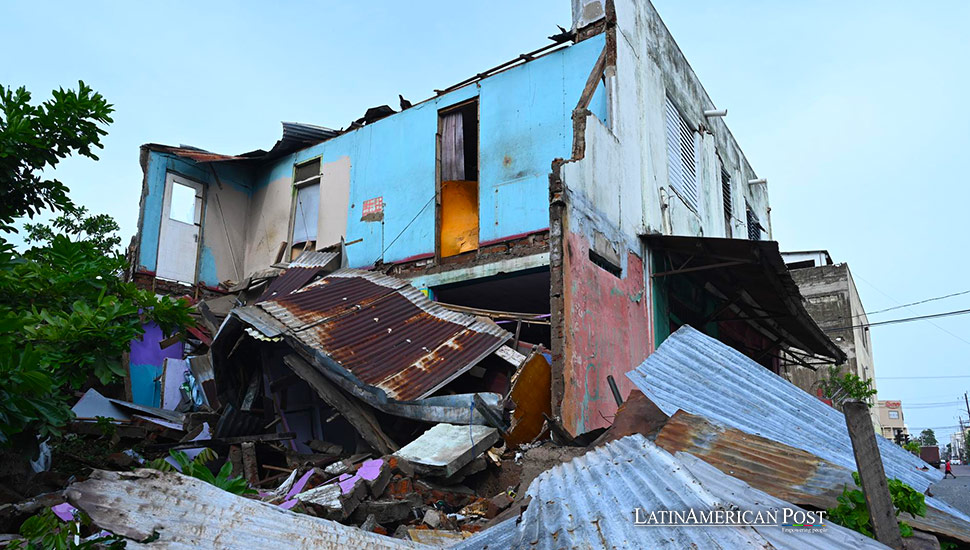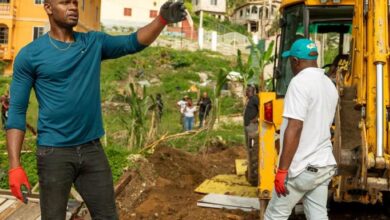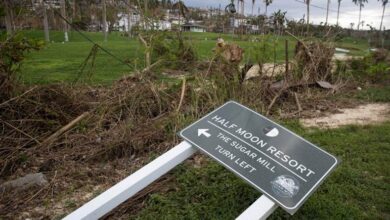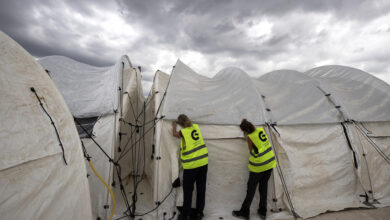Jamaica Faces Severe Food Shortages After Hurricane Beryl’s Devastation

In the wake of Hurricane Beryl, Jamaica grapples with extensive food shortages and agricultural damage amounting to over $6.4 million. The hurricane’s impact on crops, livestock, and infrastructure has left the island nation facing a significant crisis.
Jamaica is currently in the grip of severe food shortages, a direct result of the catastrophic destruction caused by Hurricane Beryl. The hurricane, which ravaged over $6.4 million in food crops and supporting infrastructure, has left the island nation in a state of urgent recovery. Jamaican officials, as reported by the Associated Press, have confirmed the widespread damage, underscoring the pressing need for immediate action.
Floyd Green, Jamaica’s agriculture minister, stated that preliminary assessments indicate significant damage to essential crops, including vegetables, tubers like yam and cassava, and fruits such as breadfruit, ackee, mangoes, and bananas. These staples are crucial to the island’s food supply, and their loss is a significant blow to the nation. The livestock and fishing sectors were also heavily impacted by the record-breaking storm that unleashed tumultuous winds and rainfall as it traveled westward just off Jamaica’s south coast last week to the Cayman Islands, Mexico, and Texas.
“We have seen about 85% of our bananas and plantain lines go down in Portland and St Mary,” Green said after visiting farms in the southern parish of St Elizabeth, as reported by the Associated Press. This level of devastation highlights the vulnerability of Jamaica’s agricultural sector to natural disasters. Farmers in regions like southern Trelawny have reported significant damage, particularly yam farmers requesting urgent assistance to recover their operations.
Green, the agriculture minister, underlined the need for a swift response to help farmers get back on their feet. He also highlighted the resilience of Jamaican farmers, stating, “Our farmers are out there, and thankfully, they are resilient. They are planning to return to farming, and we at the ministry (agriculture and fisheries) will be willing to assist them.” This spirit of resilience and determination is a beacon of hope in the face of this crisis.
Impact on the Food Supply Chain
The damage extends beyond just crop destruction. Glendon Harris, a former president of the farmers’ lobby Jamaica Agricultural Society, forecasted that the extensive damage to the agricultural sector would disrupt the food supply chain across the island. “We are going to see a shortage of some of our basic food items,” Harris said. “St Elizabeth is the known breadbasket, and Manchester is close behind, so based on the hit they have taken, it will affect the ready food for the market across the island.”
The destruction of greenhouse crops in the parishes of Clarendon, Manchester, and St Elizabeth will further strain vegetable availability. Green pointed out the severe impact on small-scale poultry farmers who have severely damaged chicken houses. This multifaceted damage signifies a significant challenge for the island’s food security.
Hurricane Beryl’s impact was not confined to Jamaica alone. The storm, which eventually diminished into a tropical storm when it hit Texas, caused widespread damage across several Caribbean nations, including Mexico, Barbados, St. Vincent and the Grenadines. According to the Associated Press, the hurricane resulted in the deaths of three people in Grenada, three in St. Vincent and the Grenadines, three in Venezuela, and two in Jamaica. The widespread nature of this disaster underscores the vulnerability of the Caribbean region to severe weather events.
The United Nations has stepped in to support affected countries, including Jamaica. On Monday, UN spokesman Stephane Dujarric stated that the organization is assisting with access to clean water, shelter, food, and health services. The UN is deploying teams to Saint Vincent and the Grenadines, Grenada, and Jamaica to aid recovery efforts. This international support is crucial in the face of such widespread devastation.
Long-Term Recovery and Resilience
The Jamaican government is continuing its assessment of Hurricane Beryl’s damage. A comprehensive evaluation of the destruction is crucial for planning effective recovery strategies. This includes not only immediate relief efforts but also long-term measures to build resilience against future storms. It’s imperative that we learn from this disaster and invest in long-term strategies for future preparedness.
Jamaica’s agriculture minister, Floyd Green, highlighted the resilience of Jamaican farmers and their determination to recover and rebuild. The Ministry of Agriculture and Fisheries is committed to providing the necessary support to help farmers restore their operations and ensure the stability of the food supply chain.
This disaster has also highlighted the importance of disaster preparedness and resilience in the Caribbean. As climate change continues to increase the frequency and intensity of hurricanes, countries in the region need to invest in sustainable agricultural practices and infrastructure that can withstand extreme weather events. It’s not just about recovery, but also about building a more resilient future.
A Call to Action
Hurricane Beryl’s devastation in Jamaica is a stark reminder of the fragility of the island’s agricultural sector and the broader Caribbean region. The extensive damage to crops, livestock, and infrastructure underscores the need for robust disaster preparedness and resilient agricultural practices. The Jamaican government’s swift response and the resilience of its farmers will be crucial in overcoming this crisis and ensuring food security.
As the nation rebuilds, focusing on long-term strategies that enhance resilience and reduce vulnerability to future storms is imperative. This includes investing in sustainable farming practices, improving infrastructure, and strengthening community support systems. By doing so, Jamaica can sufficiently withstand future challenges and ensure the stability and prosperity of its agricultural sector.
Also read: Hurricane Beryl Threatens Mexico’s Quintana Roo With Severe Impact
The international community, including organizations like the United Nations, plays a crucial role in supporting these efforts. By working together, we can help Jamaica and other Caribbean nations build a more resilient and secure future. Your support is not just valuable, it’s essential in this collective effort.





